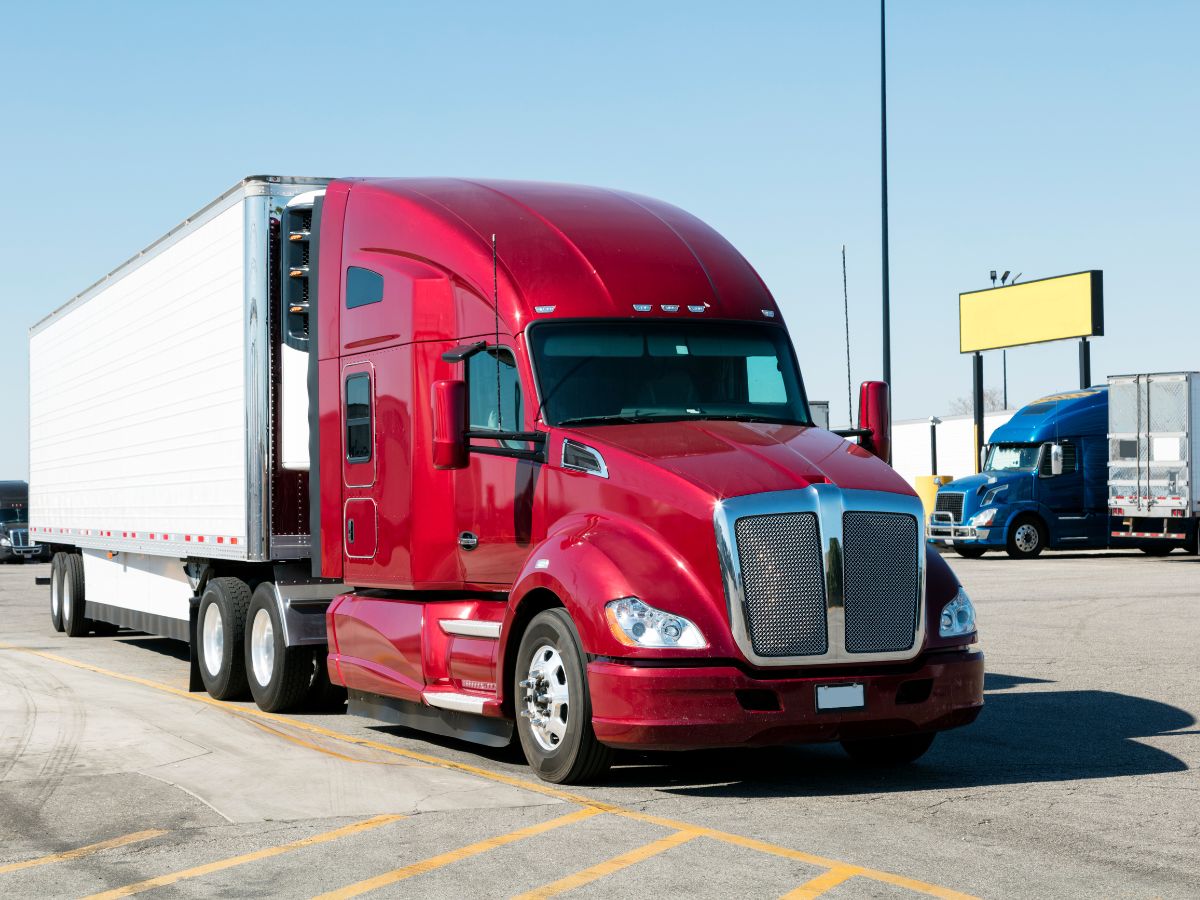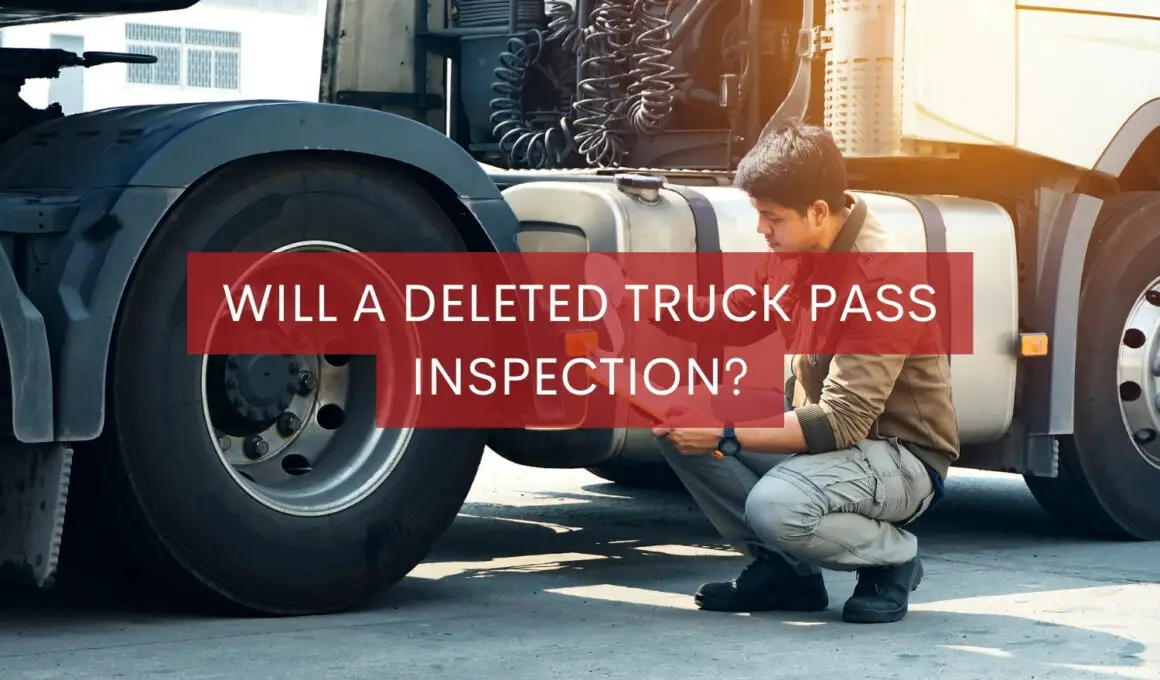In This Article Show
Welcome to another post on our truck maintenance and inspection series! As a seasoned mechanic with over 13 years of hands-on experience, I’ve encountered various scenarios and technical challenges. Today, I want to delve into a topic that often generates heated debates among truck owners and mechanics alike – the issue of “deleted trucks” and their ability to pass inspections.
What exactly is a “deleted truck?” Well, this term describes trucks with certain components, like the Diesel Particulate Filter (DPF) or Exhaust Gas Recirculation (EGR) system, removed or deactivated. This modification, often called ‘deletion’, is usually done to boost performance or fuel efficiency.
However, it’s not as straightforward as it sounds. Sure, there might be certain immediate advantages to deleting your truck. But the critical question we should ask is: Will a deleted truck pass inspection? This is a fundamental question, given the role of inspections in ensuring the safety and roadworthiness of vehicles, not to mention the environmental implications.
In this post, we will take a comprehensive look at this issue, factoring in the various aspects surrounding it. We’ll cover everything from explaining the specifics of what a deleted truck is, understanding why vehicle inspections are vital, and reviewing the legal implications of truck deletion.
Understanding Deleted Trucks
Truck deletion, often referred to as DPF or EGR delete, involves removing or deactivating specific components in a truck’s engine to increase its performance or fuel efficiency. Let’s break down what this process entails.

Diesel Particulate Filter (DPF) Delete
DPF is a device designed to remove diesel particulate matter or soot from the exhaust gas of a diesel engine. In a DPF delete, this filter is removed. This removal can result in increased horsepower and better fuel economy because the engine no longer has to work to push exhaust through the filter.
However, without the DPF, the truck emits significantly more harmful emissions.
Exhaust Gas Recirculation (EGR) Delete
The EGR system is designed to reduce the amount of nitrogen oxides (NOx) released by the engine by recirculating a portion of the engine’s exhaust gas back to the engine cylinders. An EGR delete involves removing or bypassing the EGR system.
While this can lead to improved performance and reduced engine heat, it also results in higher NOx emissions, which are harmful to the environment.
Both DPF and EGR deletes are attractive to some truck owners due to their potential to boost performance and fuel efficiency. However, these advantages must be weighed against the environmental impact and the potential legal implications, which we will delve into further in the subsequent sections.
In the grand scheme of things, it’s important to remember that these modifications don’t come without risks. While they may offer some immediate gains, the long-term impact on your vehicle and the environment is a crucial aspect to consider.
Why Do Vehicle Inspections Matter?
Vehicle inspections are crucial for a number of reasons, the foremost being safety and environmental protection.
Ensuring Road Safety
When you’re on the road, the condition of your vehicle is not just a matter of your safety, but also of the safety of other road users.
Poorly maintained or modified vehicles can lead to mechanical failures, which could result in accidents. Inspections ensure that a vehicle meets a minimum safety standard before it can legally hit the road.
Inspections can identify whether essential components like the DPF or EGR system have been removed in the context of deleted trucks. Such deletions can have significant implications on the vehicle’s overall safety and performance, rendering the vehicle unsafe for road use.
Reducing Environmental Pollution
The second primary reason for vehicle inspections is environmental protection.
As we discussed earlier, DPF and EGR systems are integral to reducing the emissions from diesel engines. By filtering particulate matter and recirculating exhaust gases, these systems limit the amount of harmful pollutants released into the air.
If these components have been deleted, the vehicle will emit higher pollution levels, contributing to poor air quality and exacerbating environmental issues such as climate change. Inspections serve as a check to ensure vehicles meet emission standards, helping protect our environment.
Key takeaway
In essence, vehicle inspections are vital to ensure our roads are as safe as possible and our air as clean as possible. As we progress through this post, we’ll examine how deleted trucks fit into this picture and the potential ramifications should they fail to pass these inspections.
Will a Deleted Truck Pass Inspection?
After understanding what deleted trucks are and the purpose of vehicle inspections, let’s delve into the meat of the matter – will a deleted truck pass inspection?
The answer, as you may expect, isn’t black and white. It largely depends on the type of inspection and the regulations of the area where you’re getting the inspection done.
Inspection Types and Regulations
A deleted truck might pass without any issues if the inspection primarily focuses on safety aspects such as brakes, tires, lights, and other physical elements. This is because, in such cases, the engine and emission systems may not be thoroughly checked.
However, during an emissions test – which is mandatory in many areas – a deleted truck may not pass. Emissions tests are designed to ensure that vehicles on the road are not exceeding a certain level of pollutants. A deleted truck may fail such an inspection because DPF and EGR deletions increase a truck’s emissions.
It’s also worth noting that in some regions, especially in the United States, tampering with emission control devices, which includes DPF and EGR systems, is against the law. So, regardless of whether the vehicle might pass an inspection or not, the act of deletion itself could be deemed illegal.
Inspector’s Knowledge
Another crucial factor is the inspector’s knowledge and expertise.
Some inspectors may not be familiar with DPF and EGR systems and might not notice if they’ve been deleted. However, as awareness about these systems grows, especially given their environmental impact, the likelihood of detection during inspection is increasing.
Key takeaway
While a deleted truck may pass some types of inspections, it’s unlikely to pass an emissions test. Moreover, given the legal implications of tampering with emission control devices, owners of deleted trucks could face fines or legal action, even if the vehicle passes an inspection.
The Legal Implications of Truck Deletion
Having touched on it briefly in the previous section, it’s important to understand the legal consequences of deleting your truck’s DPF or EGR system. Such modifications are considered illegal in many regions, especially in countries like the United States.
Violation of Emission Regulations
Under the U.S. Federal Clean Air Act, removing or tampering with any part of a vehicle’s emission control system is illegal. This includes the DPF and EGR systems. These regulations were put in place to reduce the environmental impact of harmful vehicle emissions, and they apply to all states, not just those with rigorous emission testing programs.

Potential Fines and Penalties
In the United States, penalties can be severe for violating these laws. Individuals or businesses caught removing or tampering with emission control systems can face significant fines. Even selling a vehicle with these modifications could potentially lead to penalties.
Moreover, the U.S. Environmental Protection Agency (EPA) has been increasingly cracking down on these modifications. In recent years, the agency has taken enforcement action against several businesses for selling and installing delete kits.
Inspections and Legal Consequences
During vehicle inspections, if an inspector identifies that your truck’s DPF or EGR system has been deleted, this could lead not only to the truck failing the inspection but also potential legal ramifications. The specific consequences depend on local and state regulations, but they could range from fines to the vehicle being deemed unfit for the road until the emission control system is reinstated.
Key takeaway
The legal implications of truck deletion are serious and should be carefully considered by any truck owner thinking about removing or bypassing their DPF or EGR system. While the immediate performance or fuel efficiency gains may seem attractive, the potential legal and financial repercussions are significant.
Wrapping it up
In conclusion, while deleting your truck’s DPF or EGR system might offer some immediate benefits like enhanced performance or fuel efficiency, it’s crucial to consider the broader implications. Not only can these modifications lead to increased emissions that are harmful to our environment, but they can also have serious legal consequences.
Vehicle inspections are critical in maintaining road safety and protecting our environment. While a deleted truck might pass certain types of inspections, it’s highly unlikely to pass an emissions test, which is a requirement in many areas. Moreover, the act of deletion itself can be deemed illegal, leading to potential fines or penalties.
Before deciding to delete your truck, weigh these factors carefully. Consider alternatives that can improve your vehicle’s performance and efficiency without breaking the law or harming the environment.











